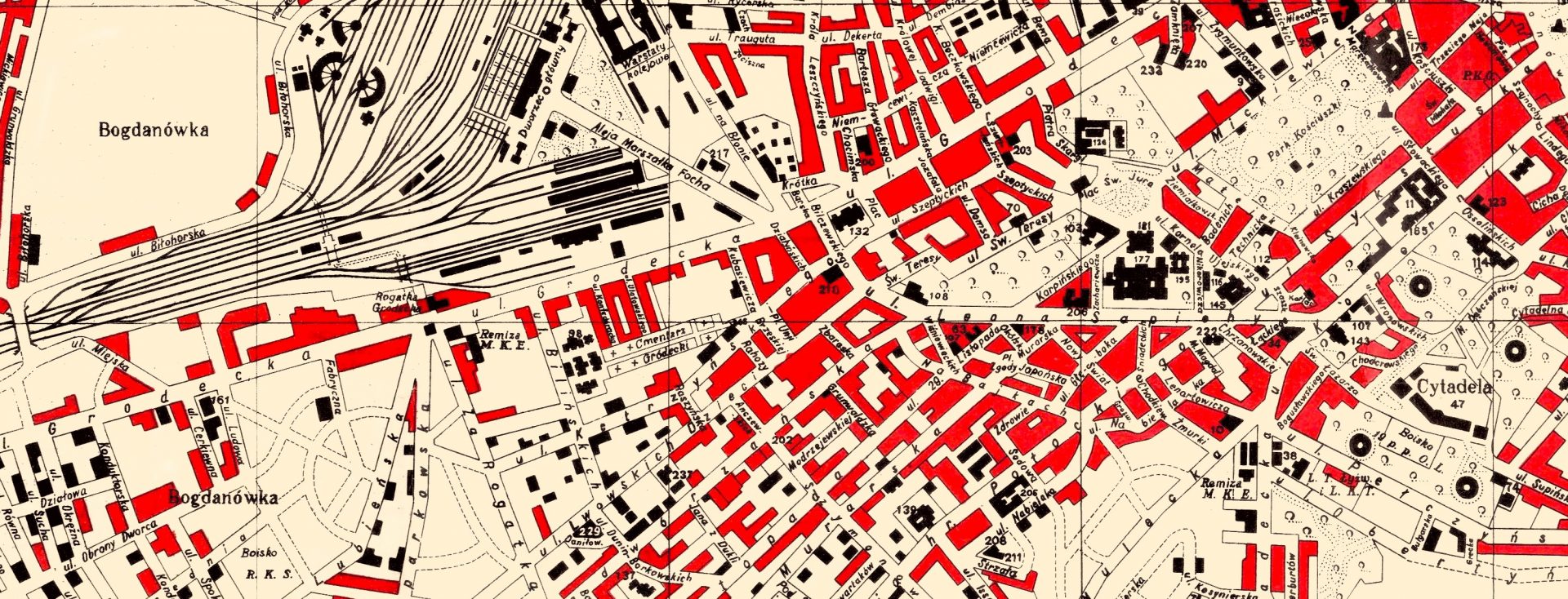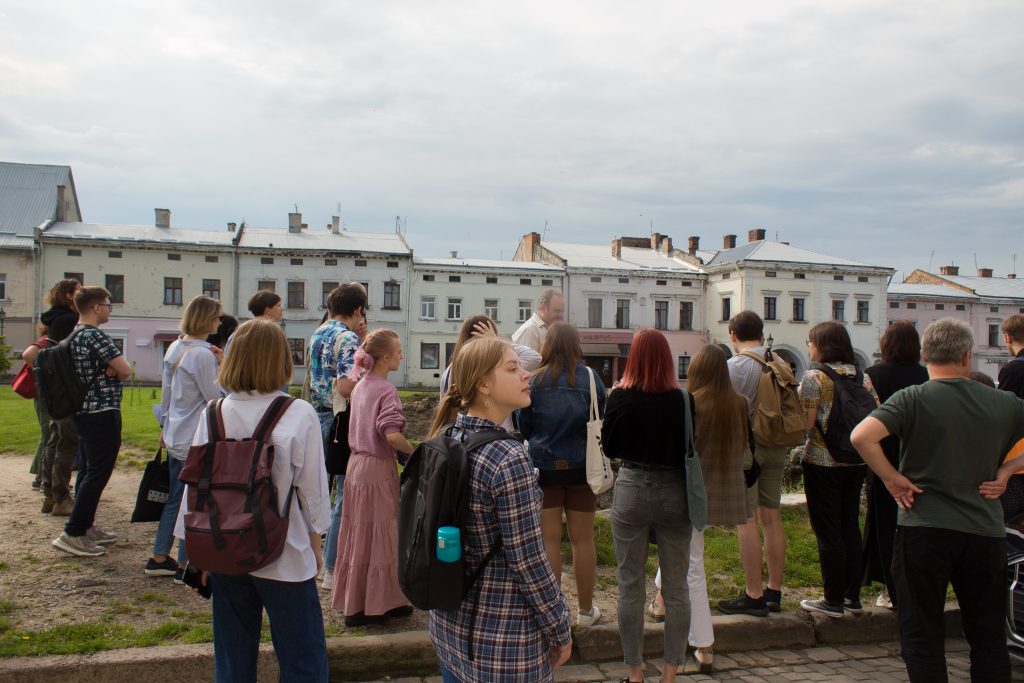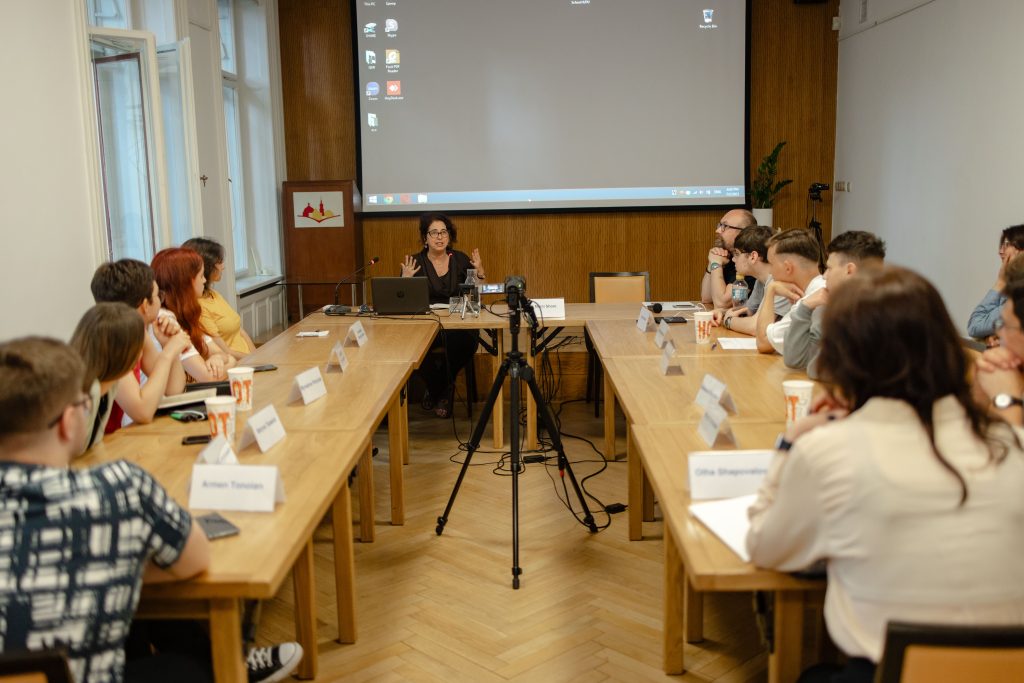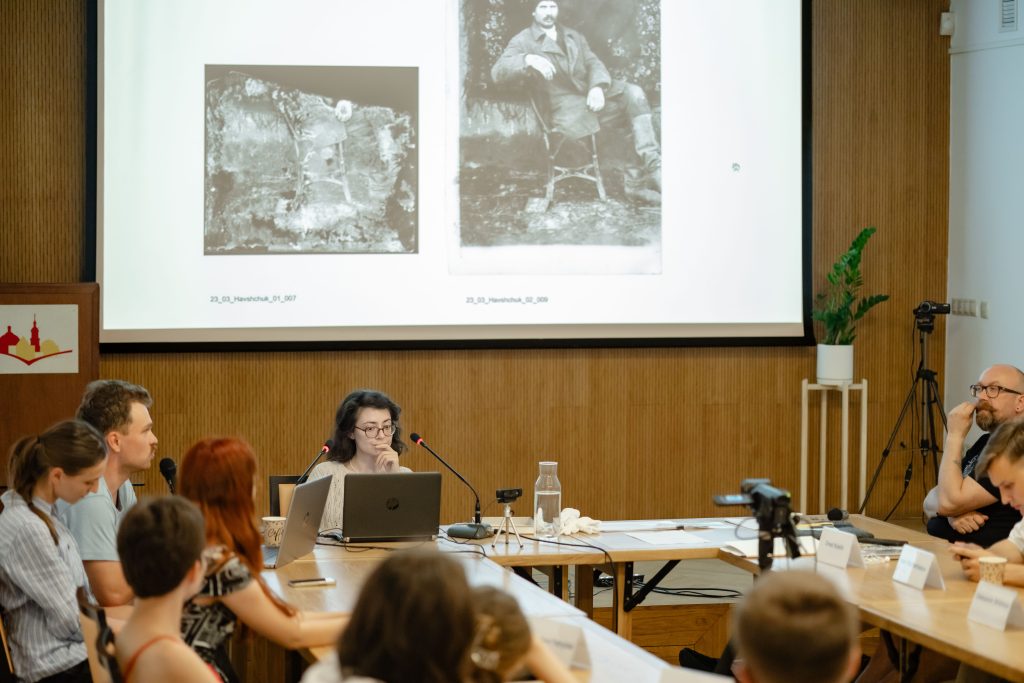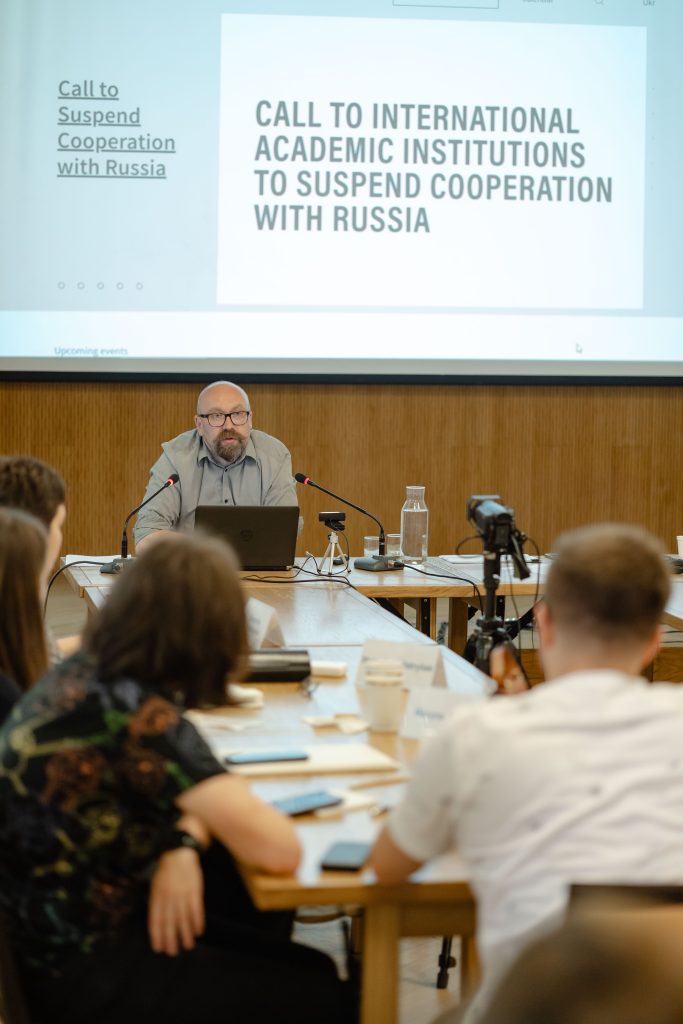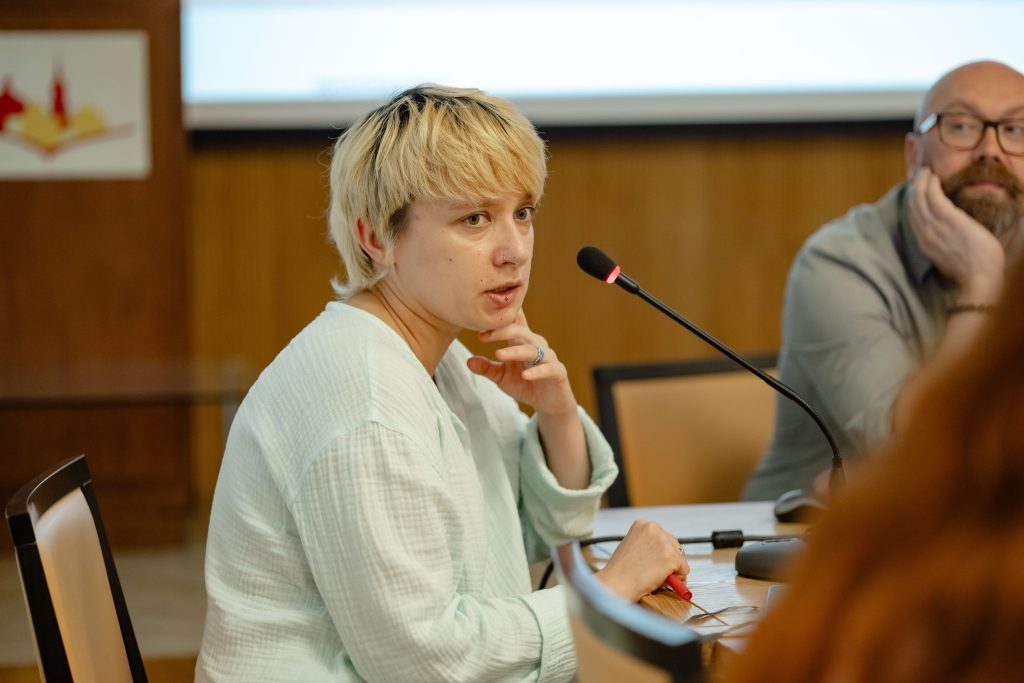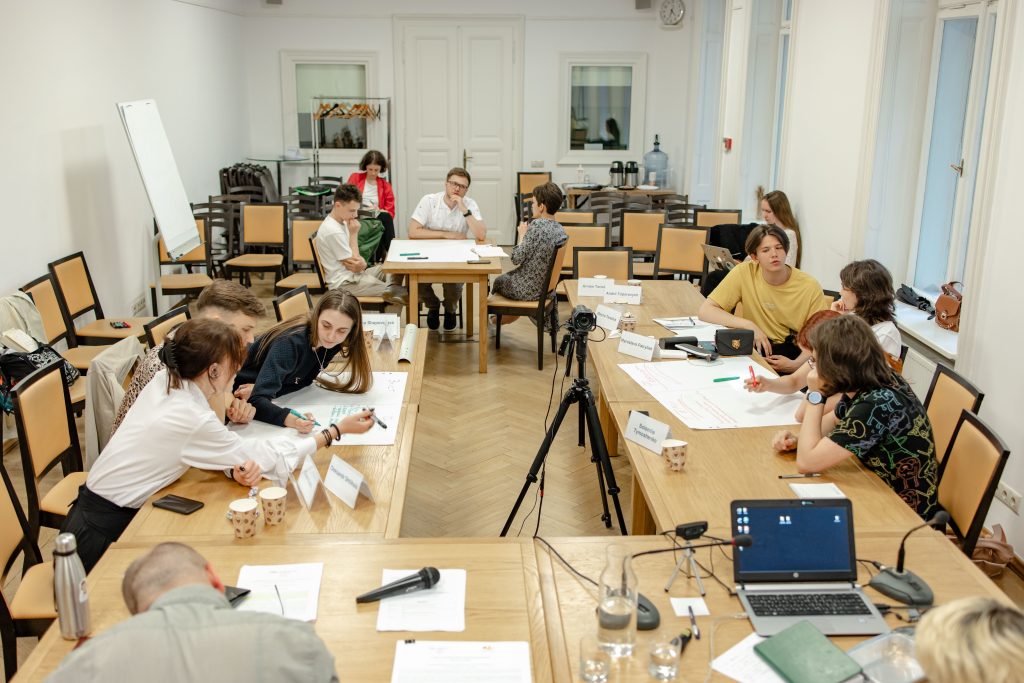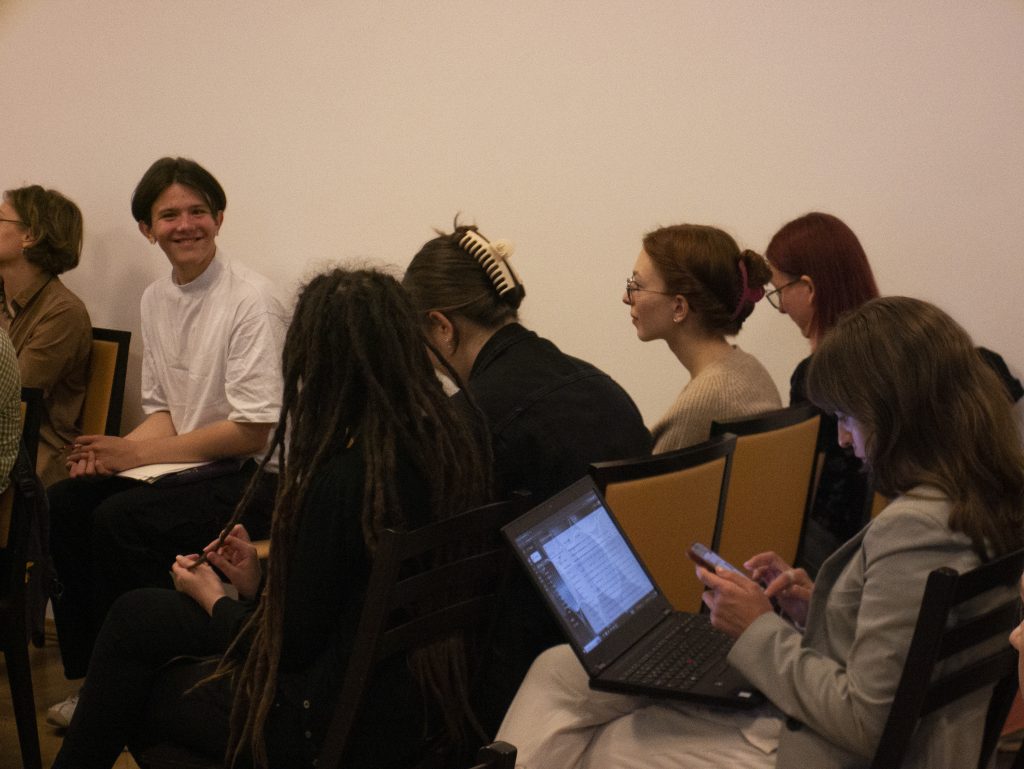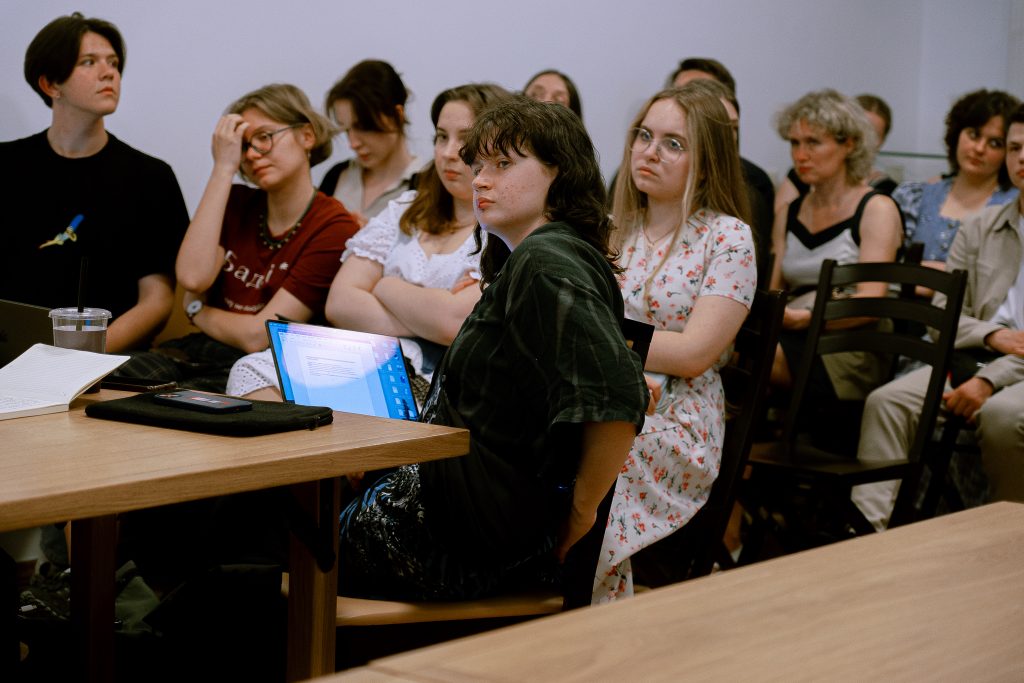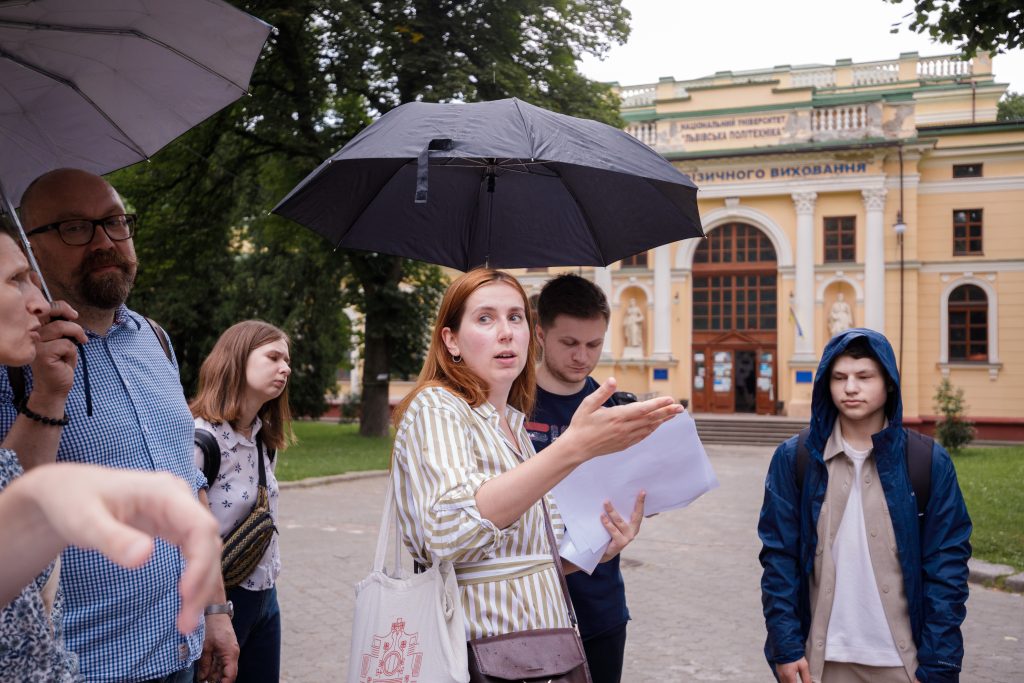Cultural Representation, Decolonization, And Canon-Building: Ukraine Before and After 2022
30.6.2023 – 07.7.2023
Center for Urban History, Invisible University for Ukraine
From June 30 to July 6, the Center for Urban History will hold a summer school "Cultural Representation, Decolonization, and the Canon-Building: Ukraine Before and After 2022," which offers a space for discussions on how to comprehend the experience of war and use it for the successful post-war reconstruction of Ukrainian culture and society.
The main focus of the school is on how the unprecedented Ukrainian experiences of war are documented and reflected in the cultural sphere, and how they reshape our understanding of Ukraine’s place on the cultural map of Europe. The school also offers to reflect on the numerous theoretical problems and specific challenges that students and scholars face when trying to comprehend the processes taking place in the "real time of war”.
Throughout the week, the school participants will have the opportunity to discuss such issues as: the validity and heuristics of post-imperial and (de)colonial interpretive frameworks; the ambiguity of national canonization and the question of inclusion/exclusion, modalities of cultural diplomacy; art and war; economic structures of cultural production, how to deal with multiethnic heritage, etc. The school aims to familiarize students with academic and critical perspectives on current discussions about Ukrainian cultural heritage and art, and thus prepare young Ukrainian intellectuals to participate in international public debates.
The school will take place simultaneously in Budapest and Lviv in a mixed format of online and offline meetings and seminars. Participants of the school will be the students of the Invisible University for Ukraine, a program of the Central European University for Ukrainian undergraduate and graduate students living in Ukraine or in exile whose studies have been affected by the war. The name of this program refers to various underground and emigrant educational initiatives of the nineteenth and twentieth centuries in Eastern Europe, as well as to the tradition of "Invisible Colleges."
Among the lecturers of the school: Volodymyr Sklokin (Ukrainian Catholic University), Marci Shore (Yale University), Alexandra Vacroux (Harvard University), Oleksii Rudenko (Central European University), and Jan Kubik (University College London), Oksana Dudko (University of Saskatchewan), Nadiia Koval (Ukrainian Institute), Katherine Younger (Institute for Humanities Research, Vienna), Sasha Dovzhyk (Ukrainian Institute in London), Bohdan Shumylovych (Center for Urban History), Olha Zarechniuk (Center for Urban History), Roksolyana Holovata (Center for Urban History), Taras Nazaruk (Center for Urban History), Yurko Prokhasko (literary critic, psychoanalyst, essayist), Joep Leerssen (cultural historian), Rostyslav Semkiv (writer, literary critic), Illia Gladshtein (film director), Nadia Parfan (film producer), Oksana Kuzmenko (philologist, folklorist), Andrii Dostliev (artist), Nadia Chushak (activist, anthropologist).
The school will also include a visual seminar by the Center for Urban History with the participation of Anastasia Kholyavka, Oles Makhanets, and Ivanna Cherchovych.
The working language of the school is English.
Organizers:
- Ostap Sereda, Associate Professor of History at the Ukrainian Catholic University, Guest Lecturer at the Central European University, Director of the Invisible University for Ukraine;
- Bohdan Shumylovych, historian and art historian, researcher at the Center for Urban History, associate professor of the Department of Cultural Studies at the Ukrainian Catholic University, head of the Lviv program of the Invisible University for Ukraine;
- Anastasia Felcher, archivist at OSA Archives, guest lecturer at the Cultural Heritage Studies Program at the Central European University, program coordinator;
- Balázs Trencsényi, Professor of History at the Central European University, head of the Democracy in History working group at the CEU Democracy Institute;
- Renáta Uitz, Professor of Legal Studies at the Central European University, Co-Director of the CEU Democracy Institute
The team of the Center:
- Bohdan Shumylovych, program development;
- Sofia Dyak, Ivanna Cherchovych, consulting;
- Maryana Mazurak, organizational support;
- Sofia Andrusyshyn, logistics;
- Oleksandr Dmytriyev, technical support;
- Yaryna Paniv, financial support;
Credits
Cover Image: map of the city of Lviv, 1943 // Ryszard Hubisz collection // Urban Media Archive of Center for Urban History
